Elbow Lake is located in the Elbow Pass north of the Highwood Pass in Kananaskis Country, Alberta. Elbow Lake lies at an elevation of 2,120 m (~7,000 ft) and is the headwater of the Elbow River. In my last post, on Bow Lake I reported that I was at the headwater of the Bow River, one of the two rivers providing the water supply to Calgary. The other is the Elbow River, which begins at Elbow Lake and merges with the Bow in Calgary.
Accompanied by my friend and fellow photographer, Bob Bear I walked in to Elbow Lake, yesterday. The hike is moderately steep, with an elevation gain of 120 m (400 ft) in 1.4 km (0.9 miles), a grade of 8%. We literally meandered up the path to the lake and then around the lake, taking time to smell the flowers (literally) and of course, take pictures. The overall hike is quite short, about 7-8 km (4-1/2-5 miles) but packed with great photo opportunities. Furthermore, we were graced with excellent weather and good light.
My first pictures were taken on the trail into Elbow Lake, beginning with this view across Highway 40 to Mount Pocaterra on the opposite side. The trail is cut through heavy forest and this is one of the few breaks in the trees.
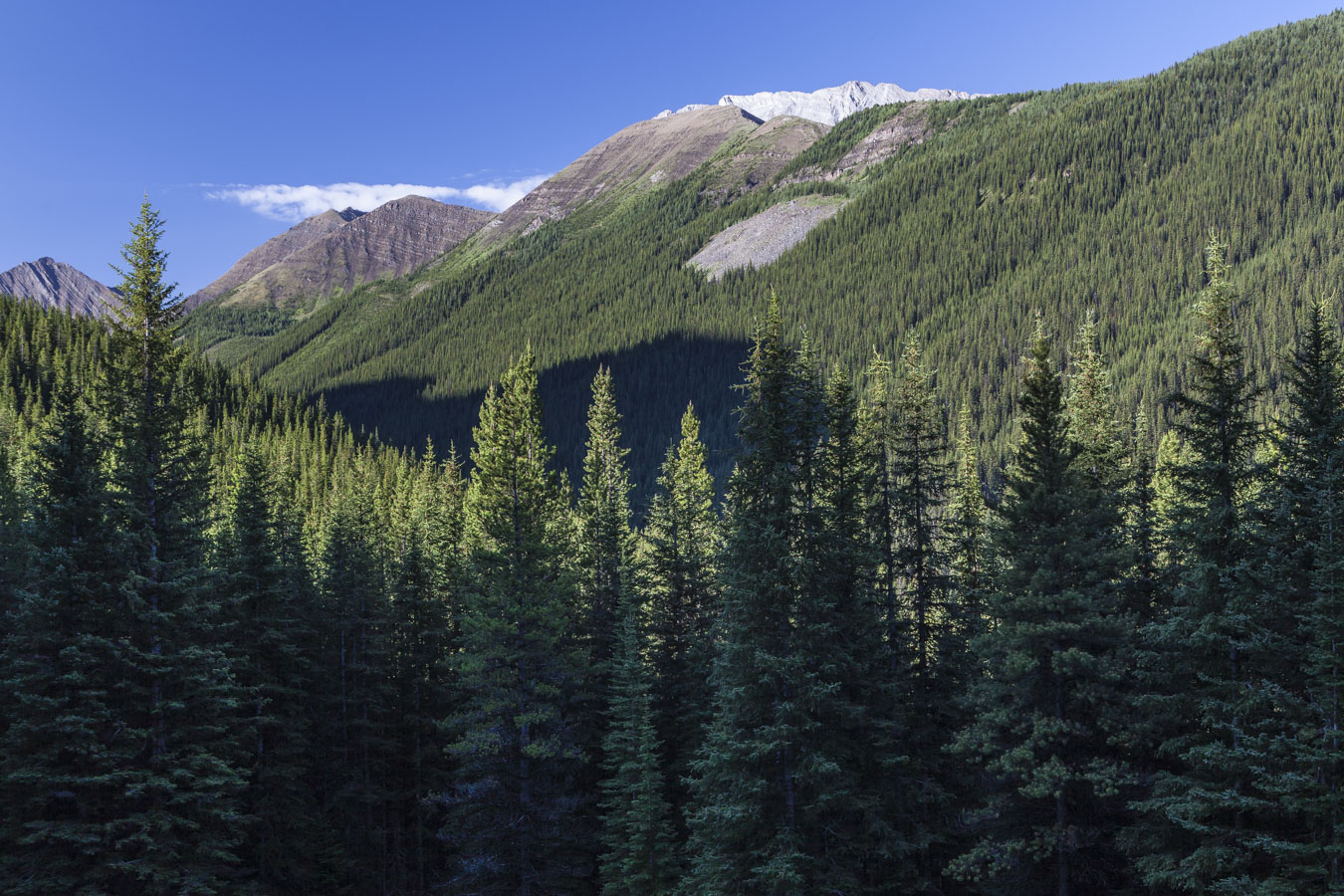
We not only stopped to smell the flowers, we photographed a few, including this beautiful Indian Paintbrush, one of the more prevalent wildflowers in Alberta. Thanks to Bob, for allowing me to test drive his macro lens.
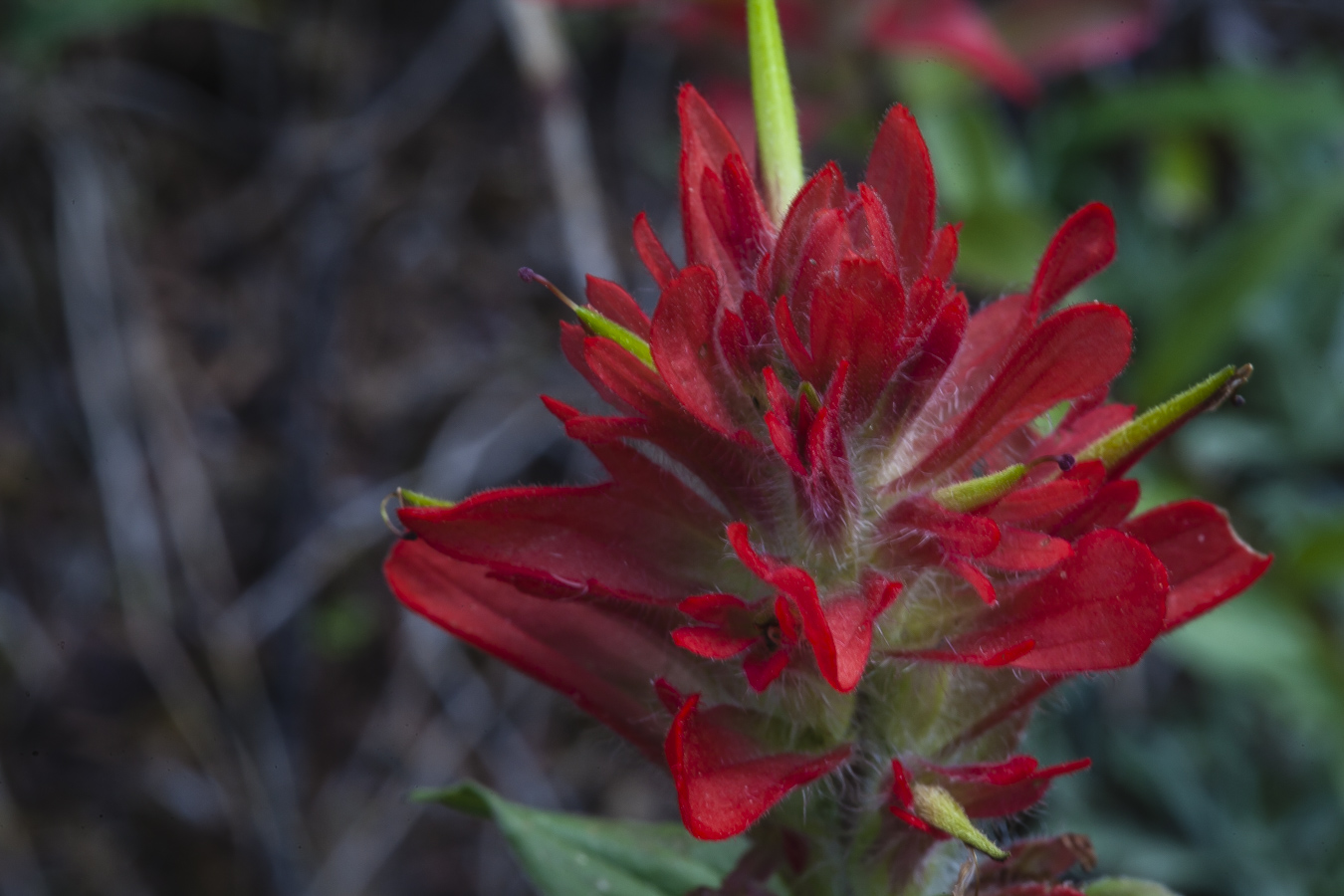
Once we reached the lake, the walking got easier and we did a full circuit around it, viewing it from different perspectives and working with the sunlight coming from changing directions as we moved. My favourite picture of the day was this next one, featuring excellent light and a nice view across the south end of the lake.
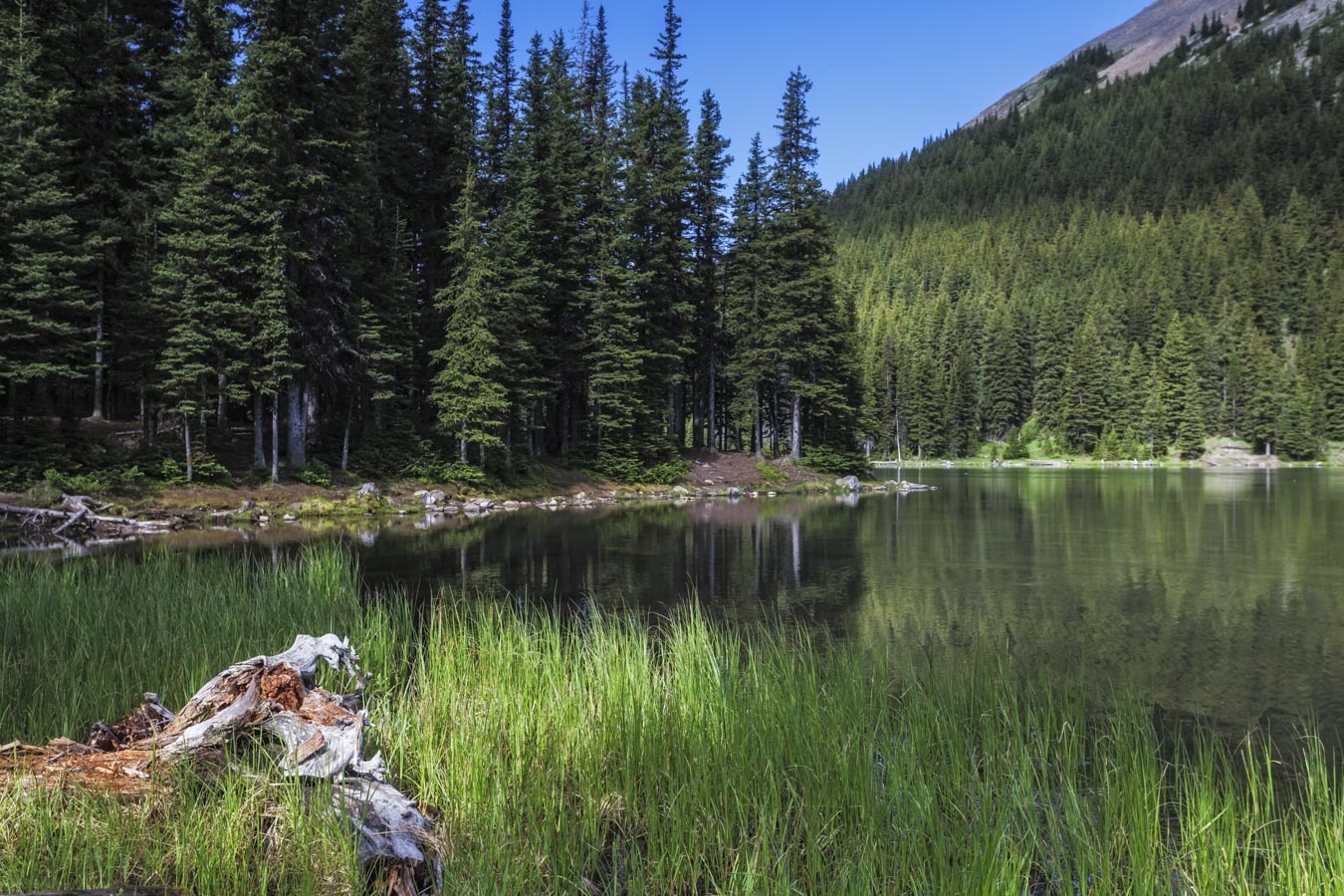
I also like the variation in light in this next scene, a shot looking southward from the end of a small cove on the east side of the lake. Pocaterra Mountain is very prominent in this scene, casting a nice reflection in the still waters of this quiet inlet.
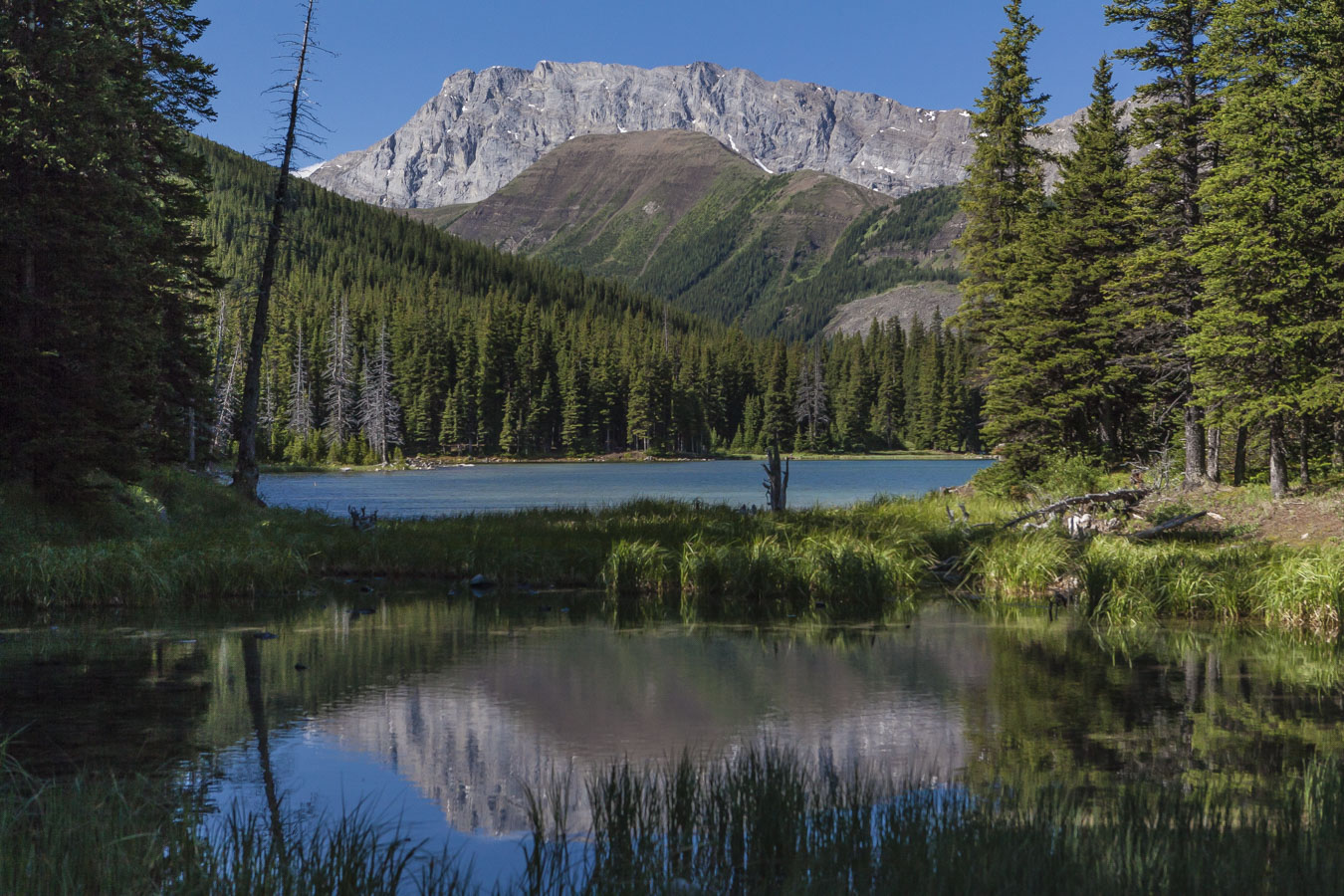
I also very much like this scene, looking northward. The deadfall in the foreground is an interesting photo subject, in stark contrast with the vibrant greenery around it. This scene also includes Elpoca Mountain, which borders the lake on its west side and Tombstone Mountain in the distance.
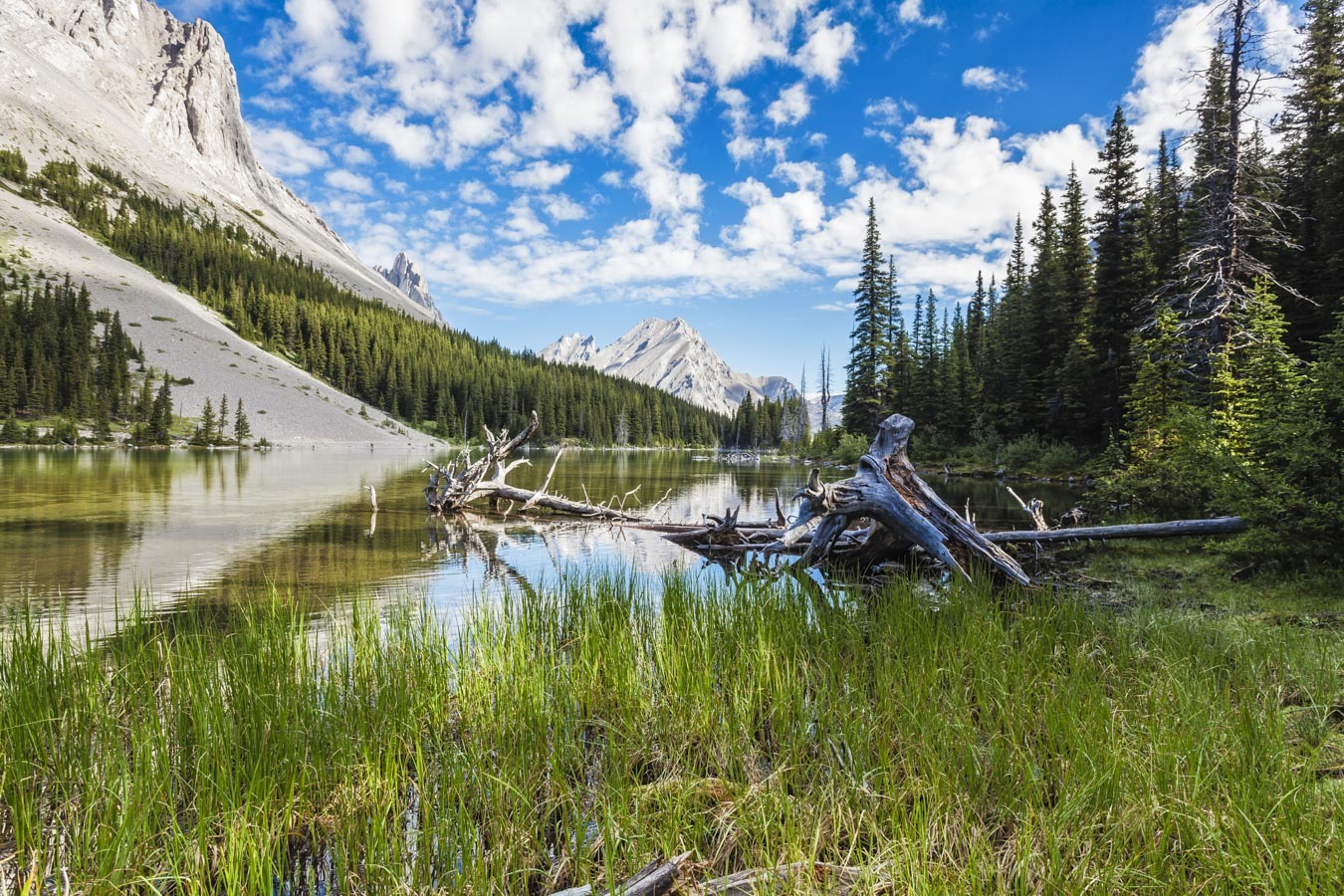
Arriving at the north end of the lake, we got some good pictures looking southward, down the lake and also in the opposite direction, toward Elbow Pass (a future destination, about 6 km further). This picture features the outlet of the lake and the beginning of the Elbow River. Of course, there’s the omnipresent, Mount Pocaterra in the background.
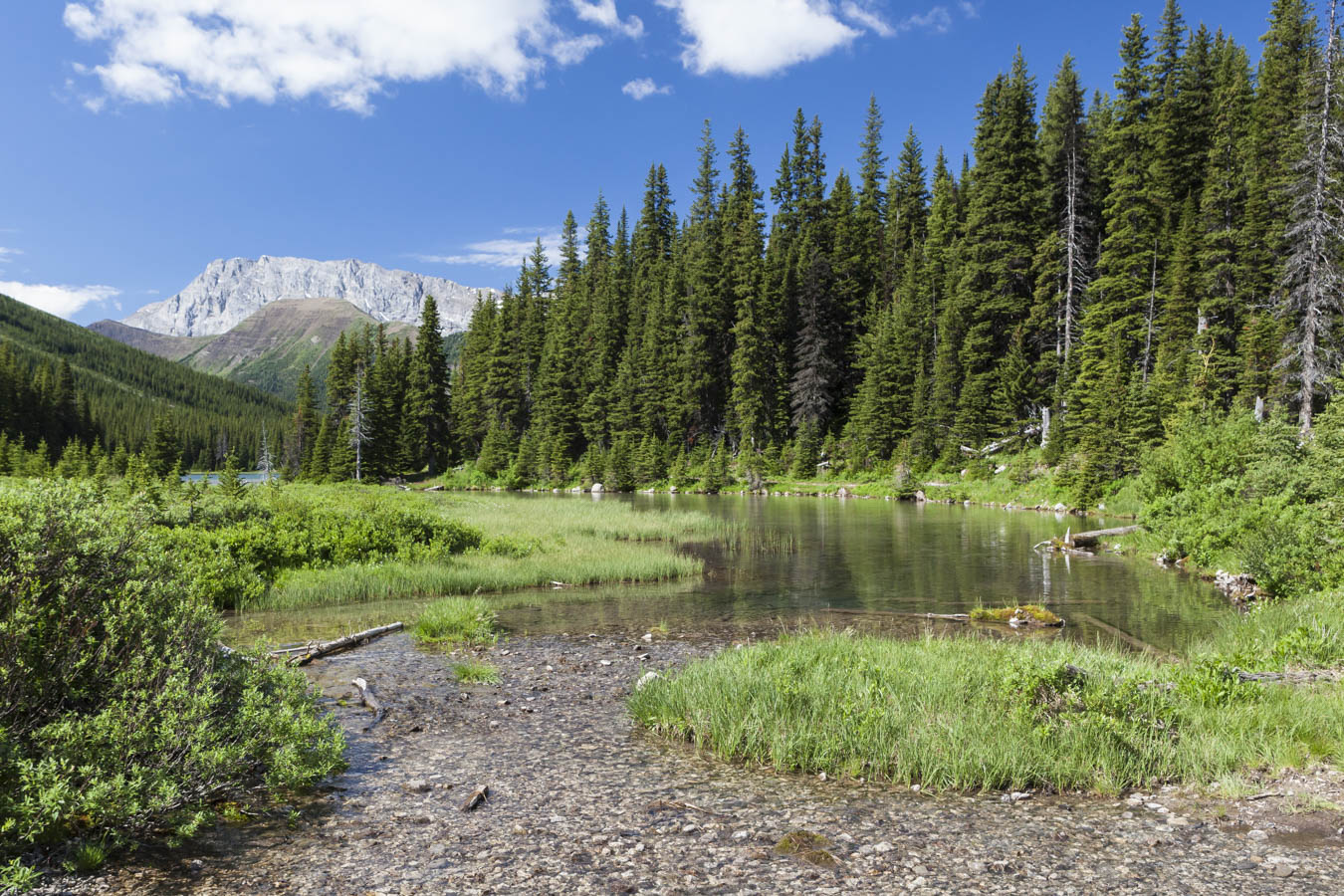
Looking the other way, you see the modest stream that is the beginnings of the river. Of course, it widens as it continues its 120 km (75 miles) journey to Calgary, as it is joined by its many tributaries. The bridge in the foreground is the first of several along the Elbow River, most of them in the City of Calgary (24 bridges).
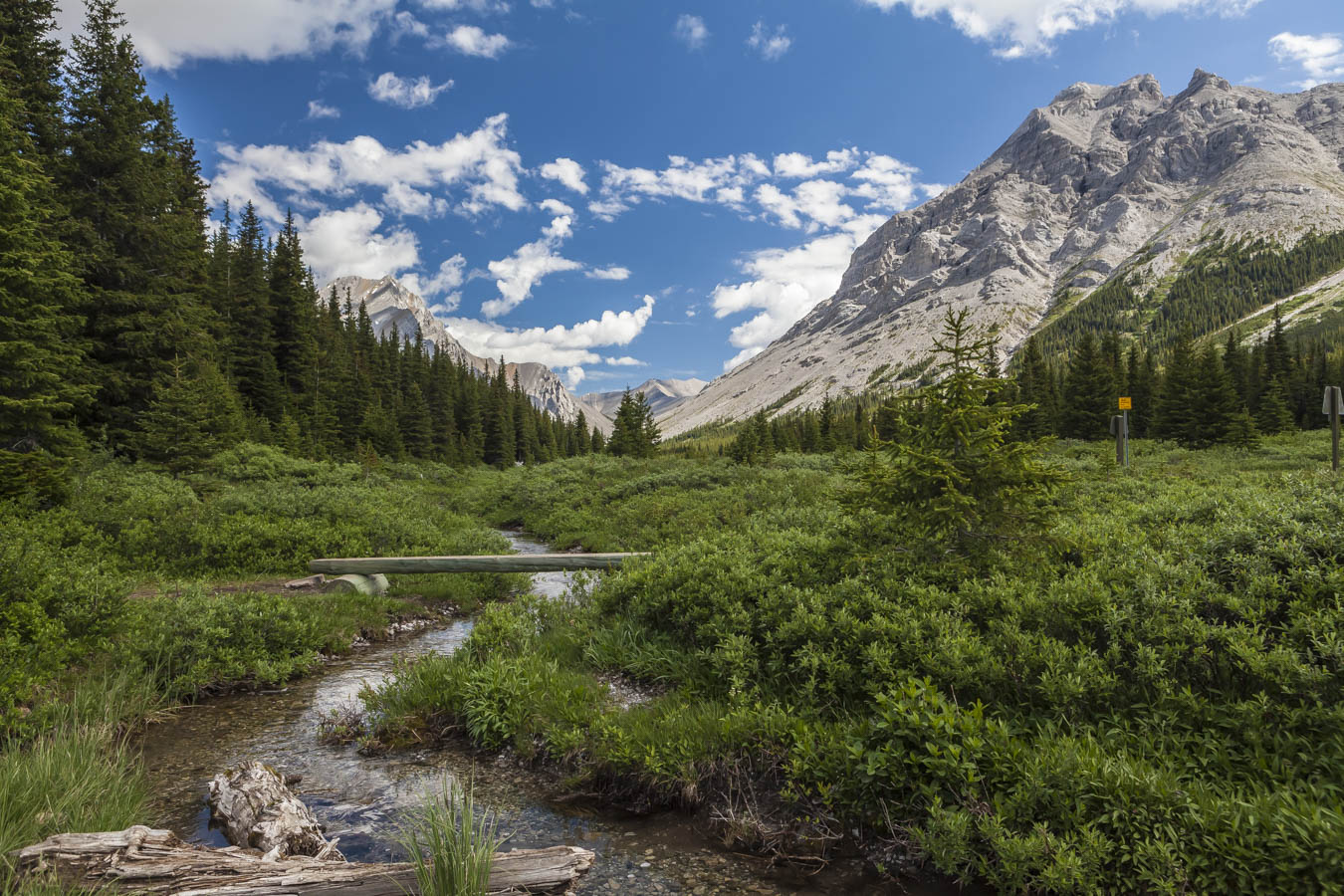
In the course of the day, we saw a number of rockfalls (sometimes termed “rock glaciers”). This one was the most visible with an excellent view to one of the peaks of Mount Elpoca. Rockfalls are a natural and dynamic geologic process involving the detachment and rapid downard movement of rock. A number of geologic processes set the stage for rockfalls, including glaciation, weathering, and bedrock fractures. The mountain above has been subjected to the forces of past glaciers, freeze-thaw cycles, wind and water erosion that have all contributed to fracturing and subsequent collapses over very long periods of time.
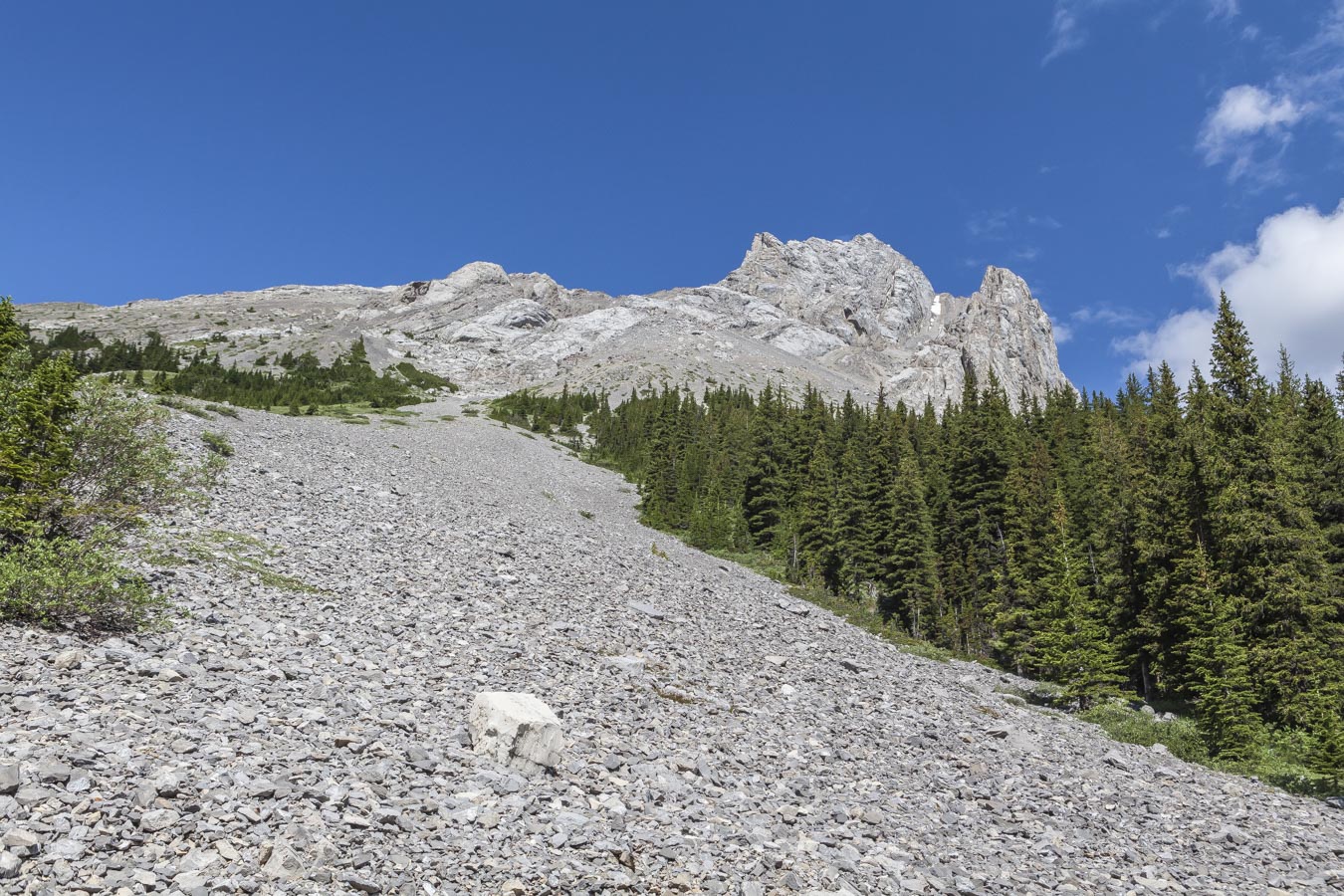
We worked our way back to the parking area, where we had a light lunch and reflected upon our good fortune to have experienced such a great day. We had no longer departed for home when we rounded a corner and got this striking view of Elpoca Mountain, which of course we stopped to photograph.

That wraps it up for today. It was an exceptional photo excursion to an area which we assuredly will visit again.

Beautiful!!!!!
Would it surprise you if I told you my favourite is the reflection of Pocaterra Mtn.? 🙂
Helen